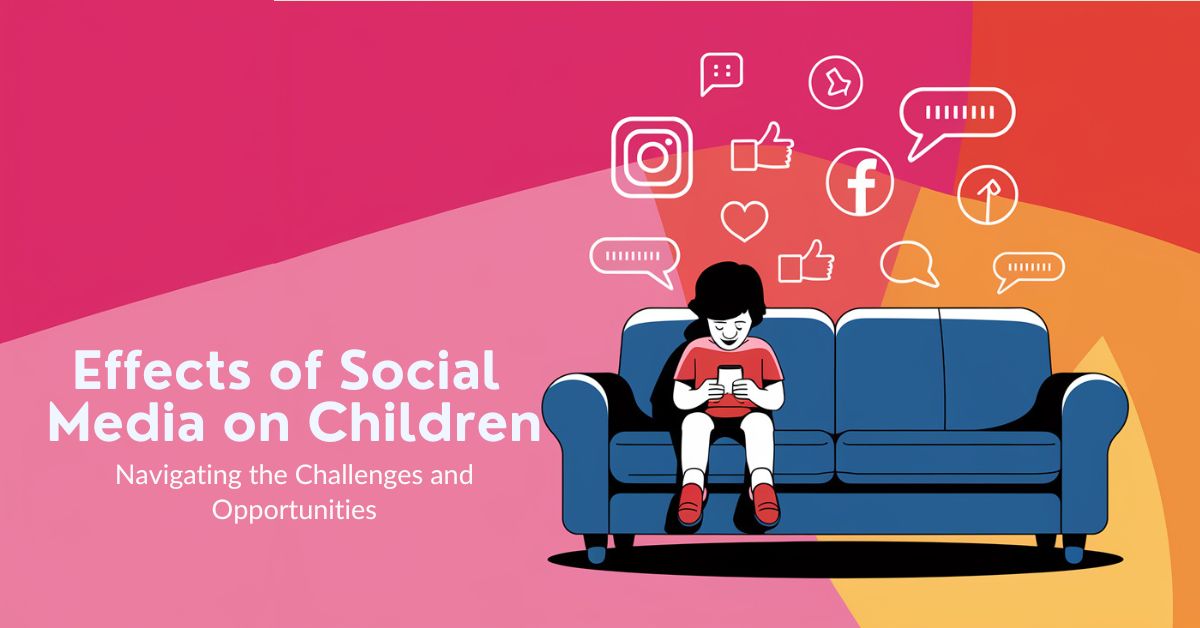The Effects of Social Media on Children: Navigating the Challenges and Opportunities
In today’s digital age, the reach and influence of social media have expanded rapidly, becoming an integral part of children’s lives. With platforms like Instagram, TikTok, and Snapchat gaining immense popularity, the effects of social media on children have become a topic of both curiosity and concern. Understanding how these platforms impact children’s development and well-being is essential for parents, educators, and society as a whole.
Understanding Social Media Usage Among Children
As technology evolves, so does the social media landscape. Children, particularly those in the age range of 8-12, are becoming increasingly active on various social media platforms. Recent statistics indicate that over 70% of children in this age group have at least one social media account, often with parental consent. Platforms such as TikTok, YouTube, and Instagram are the most popular, primarily due to their engaging content and interactive features.
- TikTok: Known for its short, engaging videos.
- YouTube: The go-to platform for both entertainment and educational content.
- Instagram: Popular for image and video sharing.
The reasons behind this growing usage are manifold. Social media offers a plethora of content, entertainment, and educational resources that attract children. Furthermore, it provides them with a platform for social interaction, self-expression, and staying connected with peers in a dynamic environment.
Positive Effects of Social Media on Children
Despite the prevalent negative narratives, social media has its share of positive impacts on children. Educationally, platforms like YouTube host a vast array of tutorials and learning videos that help children engage in subjects like science, math, and arts in a fun and interactive manner. This access to learning resources can significantly supplement their school education.
Creativity and Self-Expression: Social media platforms provide children with the tools to express their creativity and showcase their talents. For instance, children who enjoy drawing or creating videos can find an audience that appreciates their work, thus boosting their confidence and motivating them to further hone their skills.
Moreover, social media can foster global connectivity, allowing children to learn about different cultures and global events, thus broadening their perspective. Studies support these benefits, highlighting enhanced learning and critical thinking skills among socially active children.
Negative Effects of Social Media on Children
However, the effects of social media on children are not without their challenges. Cyberbullying has emerged as a significant issue, with children sometimes facing harassment or bullying from peers online. This can lead to anxiety, depression, and even lead children to withdraw from social interaction.
Furthermore, social media can become addictive, with children spending excessive amounts of time scrolling through feeds or engaging with content. This addiction can interfere with daily activities, academic performance, and physical health, including issues like eye strain and disrupted sleep patterns.
Experts suggest that excessive social media use can lead to mental health issues, with children developing symptoms of anxiety and depression due to the pressure of perfect online personas and cyberbullying.
Parental Guidance: Mitigating the Negative Effects
Parents play a crucial role in mitigating the negative effects of social media on children. It is vital for parents to monitor and regulate their children’s social media use while encouraging open and honest communication. This can help in addressing any issues that may arise early on and provide a supportive environment for children.
Actionable Tips for Parents:
Implementing certain measures can greatly help in creating a safer social media environment for children.
- Encourage limited screen time to ensure children engage in other productive activities.
- Educate children about cyberbullying and encourage them to speak up if they experience any form of harassment.
- Use parental control tools and safe apps to monitor activity discreetly.
- Engage in regular conversations about their experiences on social media to ensure they approach it mindfully.
Utilizing apps like Bark and Family Link can provide added protection by alerting parents to potential threats and helping manage screen time.
The Future Implications of Social Media for Children
Looking towards the future, the effects of social media on children could potentially shape generations. As technology advances, social media is expected to become even more immersive and integrated into daily life, making it crucial to understand its long-term implications.
The evolution of augmented reality and virtual reality could create new social media experiences that redefine interaction and engagement for children.
These developments can foster enhanced learning opportunities, but also imply the need for robust digital literacy education to navigate potential risks. As social media continues to evolve, preparing children with skills to harness its potential and mitigate its risks will be essential for their well-being and development.
Conclusion
The effects of social media on children are multifaceted, encompassing both potential opportunities and significant challenges. While it can be a tool for learning and self-expression, it is equally important to be aware of its risks and manage its usage mindfully. A balanced, informed approach involving parental guidance can help children reap the benefits of social media while minimizing its downsides.
We invite readers to share their thoughts and experiences regarding the effects of social media on children in the comments section below. Your insights could help create a supportive community for those navigating this complex landscape.








